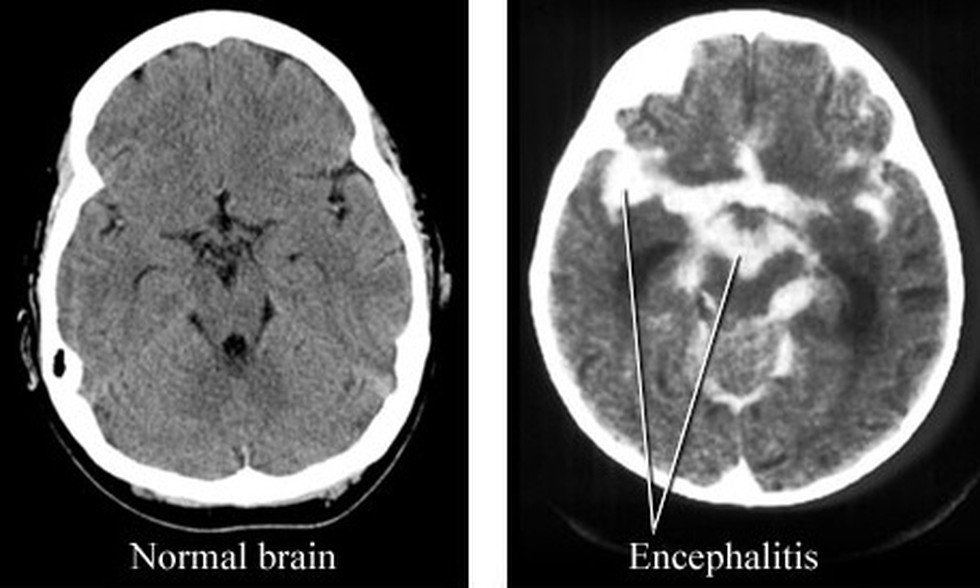Encephalitis:
- It is an inflammation and swelling of the brain which is caused
- either by an infection invading the brain (Infectious Encephalitis) or
- through the immune system attacking the brain in error (Post-infectious or Autoimmune Encephalitis).
- The infection is mainly caused by Rarely bacteria, fungus and parasites can also cause it.
Acute Encephalitis Syndrome (AES):
- It is characterized by an acute onset of fever and clinical neurological manifestation that includes mental confusion, disorientation, delirium, or coma.
- The most common causes of acute viral encephalitis are Japanese encephalitis virus, West Nile virus (WNV), Chandipura virus (CHPV) etc.
- AES is reported mainly from Assam, Bihar, Karnataka, Uttar Pradesh and Tamil Nadu which contributes approximately 80% of cases.
Japanese Encephalitis (JE):
- It is a brain infection caused by the mosquito-borne Japanese encephalitis virus (JEV).
- JEV (a virus from the family FLAVIVIRIDAE) is transmitted to humans through bites from infected rice field breeding mosquitoes of the Culex species (mainly Culex tritaeniorhynchus).
- There is no transmission from person to person and therefore patients do not need to be isolated. Also one can get JE from animals other than domestic pigs & Wild birds or from insects other than mosquitoes.
- This disease is most prevalent in Southeast Asia, South Asia and East Asia.
- Although individuals of any age may be affected, but JE primarily affects children.
- Treatment: There is no specific therapy. Intensive supportive therapy is indicated.
